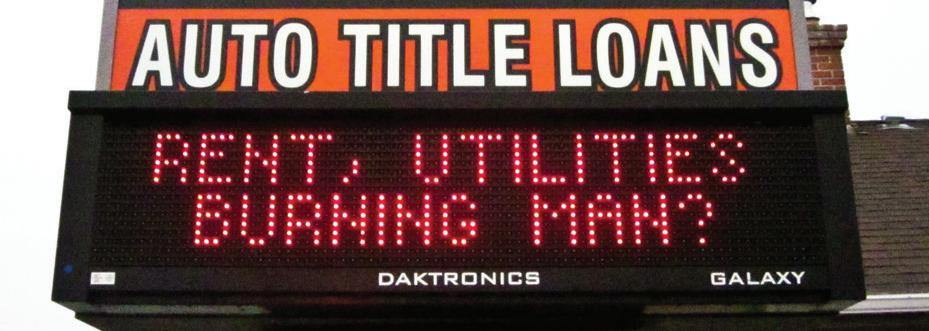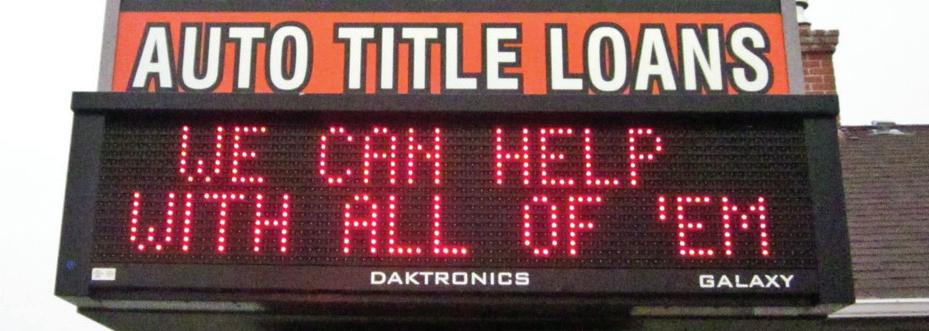
10 minute read
News
from Sept. 12, 2013
Documentary to be shown
The 1998 independent documentary Trans will be shown at the Galaxy Fandango Theatre in Carson City on Sept. 16.
Advertisement
The award-winning movie opens with the story of Dr. Christine McGinn, formerly Lt. Commander Christopher McGinn, a NASA flight surgeon. She told Philly magazine that she participated in the filming because “there is a need for a well-made documentary that covers some of the social issues that affect transgendered people.”
From McGinn’s story, the film moves on to other individual stories of transgender people.
The showing will be at 5:30 p.m. at the Galaxy Fandango Theatre in Carson. Tickets can be purchased at www.tugg.com/ events/4923. Additional information is available by calling 220-4151.
Jobless pay reduced
Unemployment compensation payments in Nevada for 20,000plus residents have been cut 59 percent. The state has the highest jobless rate in the nation.
The state delayed sequestration cuts and with the fiscal year ending at the end of this month, the cuts have to be packed into a short time, prompting the mammoth cut in unemployment payments. Normally, the average weekly check in Nevada is $309.
Marijuana planning moves slowly
State legislators have approved funding to hire staff and collect taxes as part of Nevada’s medical marijuana process.
The Interim Finance Committee, which allocates money when the full legislature is out of session, provided $250,000 to the Division of Public and Behavioral Health for two contract employees who will set up the program.
Another $529,000 was given to the state Taxation Department to create a system to collect excise taxes on the sale of marijuana.
The Nevada Legislature this year provided for 40 dispensaries around the state after state Judge Donald Mosley ruled that the state’s failure to provide a means for patients to obtain the substance “is either poorly contemplated or purposely constructed to frustrate the implementation of constitutionally mandated access to the substance.”
Meanwhile, in Las Vegas last week, the city put a six-month moratorium on approving any dispensaries. The foot-dragging drew criticism but was defended by vice mayor Stavros Anthony, who previously—as a Nevada regent—tried to bar rap music from Lawlor Events Center and other higher education locations in the state. Anthony, a police officer, said the long delay will give the city more time to write regulations, a job that is already being done by the state.
Las Vegas Mayor Carolyn Goodman, on the other hand, expressed concern that patients get good stuff, though there is no existing program for assessing the quality of grass. She also suggested that the dispensaries should be non-profit, which—with numerous potential commercial vendors lined up waiting—appears to be a non-starter.
The meter’s still running
Although the Iraq war is supposedly over—at least the U.S. portion of it—taxpayers keep paying for it.
The last time we checked, the Iraq war had cost the U.S. $799,718,239,000 (“Now that the war is ‘over’”, RN&R, Dec. 29. 2011). Today that figure is $814,086,482,000, according to the National Priorities Project.
The cost to Reno taxpayers for the war so far is $676,862,107, and the amount is still rising. According to NPP, the cost to all Renoites for the war each hour is $685.
—Dennis Myers
Order trumps speech
Court sorts out competing school issues
The U.S. Court of Appeals for the Ninth Circuit has upheld the expulsion of a Douglas by County High School student who Dennis Myers used threatening language in his social media communications sent from home to classmates. The court opinion, by Judge M. Margaret McKeown, represented the view of a three-judge panel of the court. The opinion navigated legally difficult points of conflict between school safety and freedom of expression and found the student’s speech rights and due process rights were
U.S. Court of Appeals Wynar v. Douglas County
The court opinion at issue, Mark Wynar v. Douglas County School District, can be found at www.ca9.uscourts.gov/ opinions/
The Nevada statute under which the student was charged is at www. leg.state.nv.us/NRS/ NRS-392.html. its number is NRS 392.4655 not violated. “With the advent of the internet and in the wake of school shootings at Columbine, Santee, Newtown and many others, school administrators face the daunting task of evaluating potential threats of violence and keeping their students safe without impinging on their constitutional rights,” McKeown wrote. “It is a feat like tightrope balancing, where an error in judgment can lead to a tragic result.”
The court itself walked a tightrope: “At the same time, school officials must take care not to overreact and to take into account the creative juices and often startling writings of the students.”
The student, a sophomore named Landon Wynar, sent messages to his fellow students in 2008 that alarmed them. After communications among themselves, they took the problem to a coach, who accompanied them to the principal, who called in law enforcement. One deputy described the students as visibly shaken.
Wynar, after declining to have a parent present, was questioned about the messages and he called them a joke. Examples of those messages: • “its pretty simple / i have a sweet gun / my neighbor is giving me 500 rounds / dhs [Douglas High School] is gay / ive watched these kinds of movies so i know how NOT to go wrong / i just cant decide who will be on my hit list / and thats totally deminted and it scares even my self” • “i havent decided which 4/20 i will be doing it on / by next year, i might have a better gun to use such as an MI cabine w/ a 30 rd clip. . . .or 5 clips. . . .10?” [April 20 was the date of the Columbine tragedy.]
It was later learned that Wynar had several weapons at home, including a Russian semi-automatic rifle.
After signing a statement Wynar was suspended for 10 days. He spent 31 days in jail. Ultimately, he was charged by the Douglas County School Board under Nevada Revised Statute 392.4655, which provides in part, “[A] principal of a school shall deem a pupil ... a habitual
Douglas County was faced with a case that pitted free speech claims against school safety needs.
disciplinary problem if the school has written evidence which documents that in 1 school year: (a) The pupil has threatened or extorted, or attempted to threaten or extort, another pupil or a teacher or other personnel employed by the school.”
In 1968, the U.S. Supreme Court provided a broad right of students to free expression in Tinker v. Des Moines. That right has been steadily narrowed since then by several subsequent cases. The Ninth Circuit itself turned for guidance to its own ruling in a previous, similar case—LaVine v. Blaine School District.
The court first examined Wynar’s First Amendment claim. He was expelled for what he wrote, not for anything he actually did, and he did the writing off the school grounds.
The opinion read: “A student’s profanity-laced parody of a principal is hardly the same as a threat of a school shooting, and we are reluctant to try and craft a one-size-fits-all approach. … [I]t should have been reasonably foreseeable to Landon that his messages would reach campus. ... Here we make explicit what was implicit in LaVine: when faced with an identifiable threat of school violence, schools may take disciplinary action in response to off-campus speech that meets the requirements of Tinker.”
As for whether Wynar’s exercise of his free speech caused disruption or interference with school activities—a threshold issue in Tinker—the court panel said, “Confronted with messages that could be interpreted as a plan to attack the school, written by a student with confirmed access to weapons and brought to the school’s attention by fellow students, Douglas County faced a dilemma every school dreads. … [T]he harm described would have been catastrophic had it occurred.” One student specifically identified as a target in the Wynar messages said her father would not allow her to return to school if Wynar was there.
The court said, “The location of the speech can make a difference, but that does not mean that all off-campus speech is beyond the reach of school officials.”
The court examined the issue of whether Wynar had invaded the rights of others, also an issue in Tinker: “Landon’s messages threatened the student body as a whole and targeted specific students by name. They represent the quintessential harm to the rights of other students to be secure.”
The court did not give the school district a pass on its handling of the Wynar case, calling it “primitive.”
“Our responsibility, however, is not to parse the wisdom of Douglas
County’s actions, but to determine whether they were constitutional. We conclude that they were.”
The court then turned to Wynar’s claim of a violation of procedural due process before his suspension.
“Under Nevada law, Landon had a property interest in his public education and was therefore entitled to due process before he could be suspended,” the court noted. But it said with a seeming lack of enthusiasm that the handling of the case “was constitutionally adequate. Neither the Constitution nor the school district’s policies require parental notification prior to imposing a 10-day suspension or prior to meeting with a student.”
To Wynar’s claim that he was not notified that he could face discipline for some off-campus actions, the court found, “Apart from common sense, the school’s student handbook, which is distributed at the beginning of each year, gave adequate warning ... that he could face sanctions for his alarming statements about shooting classmates.”
The court decided it need not address Wynar’s contention that he was joking in his messages because “it was reasonable for Douglas County to proceed as though he was not.”
“Though he was charged under a habitual discipline statute and had no previous record of problems, the court found that the statute does require habitual problems in some discipline areas, but not in extortion or threat.” The court also noted that a study of school shootings by the U.S. Secret Service and Department of Education found that in most cases there were no previous discipline problems.”
Allen Lichtenstein and Vanessa Spinazola of the American Civil Liberties Union of Nevada read the decision at the request of the RN&R and offered this analysis:
“In this case, the Court of Appeals for the Ninth Circuit ruled that under certain exigent circumstances, particularly where school and student safety is concerned, the reach of school authority to involve itself in matters of off campus speech may be appropriate. The court, however, made it clear that absent special circumstances speech by students that occurs away from the school is not ordinarily within the purview of school disciplinary policies. This decision is fairly reasonable, particularly in light of actions happening in other circuits, where school authority is being stretched much further.”
One matter not directly addressed was Wynar’s state of mind, likely because the case was limited to constitutional issues. Messages Wynar sent out suggested he felt isolated and even hated, by students and parents. The opinion said the Ninth Circuit in an earlier case argued that expulsion “without providing some kind of counseling or supervision might not be the best response to a school’s concern for potential violence.”
Wynar is now legally an adult. Ω
Burning money


Given the steep admission charge—to say nothing of the cost of producing art and other things once inside—Burning Man is usually thought of as an upscale item. A Sparks company suggests a way for other income levels to attend: debt. NorthstarCalifornia.com 1.800.GoNorth
Balance Holistic Health Spa Disc Golf Tahoe Apex Adventure Bungy and Ropes Challenge The Villager Candle Shop, Po�ery Painting, and More STRIDER Adventure Zone Roller Skating Gem Panning Mini Golf Live Music on the Village Stage Village Cinemas














